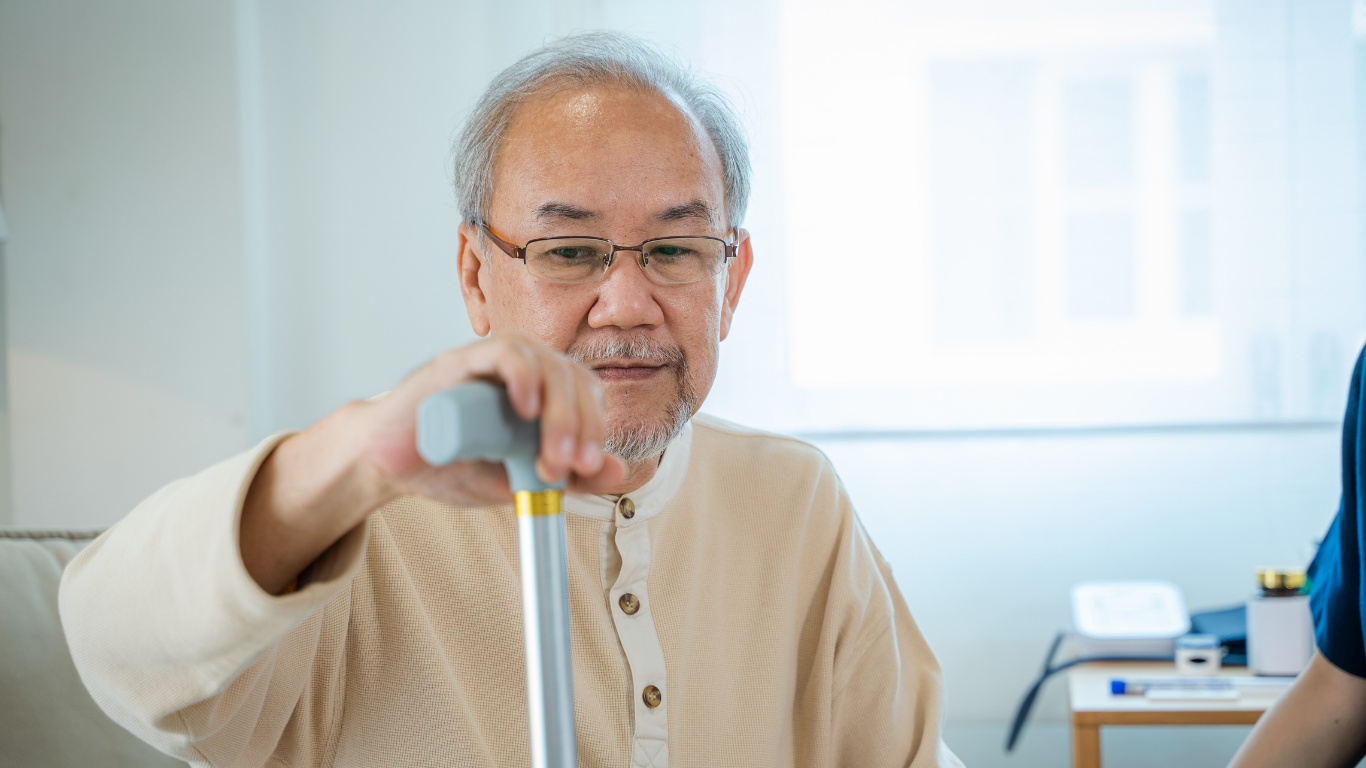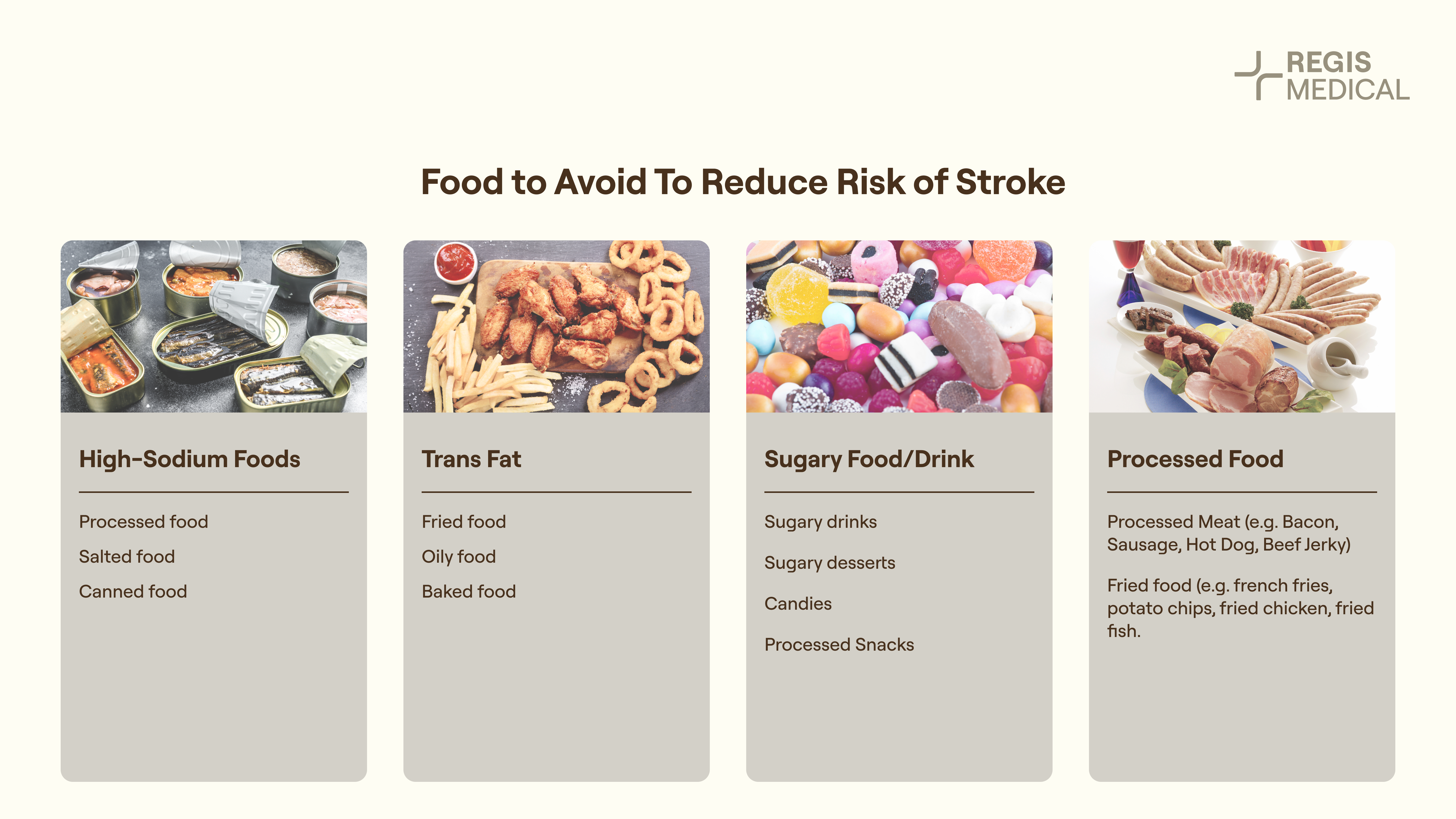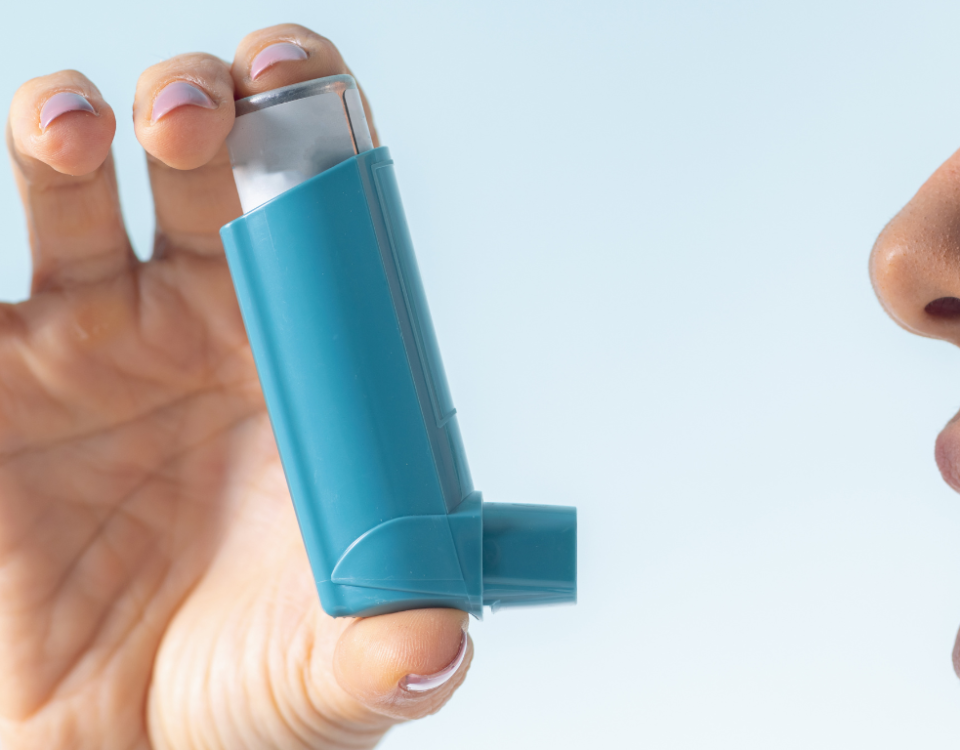Stroke Treatment and Prevention in Singapore
by: Dr. Paul Chang, General Practitioner, Regis Medical
Last updated: November 29, 2025
Stroke is the leading cause of adult disability in Singapore. 63 percent of stroke patients will experience some form of disability within three months of the stroke attack. Stroke is also one of the most common causes of death. 6.8 percent of all deaths in Singapore are caused by stroke.
Stroke in Singapore
Stroke is a serious, life-threatening health problem that is a leading cause of death in Singapore, ranked fourth on the list. It amounted to 6.8% of all deaths and was the seventh leading cause of adult disability, accounting for a total of 4.2% of years of life lost due to disability. The prevalence of stroke among Singaporeans aged above 50 years old is 3.65% and is predicted to rise due to Singapore’s rapidly ageing population.

Discuss Stroke Risk with Regis Medical
Patient-first, Holistic, Dedicated Healthcare
What is a Stroke?
A stroke occurs when the blood supply to the brain is cut off (blocked artery) or when a blood vessel in the brain bursts (ruptured artery). This can cause irreversible damage to parts of the brain, long-term disability, or even death.
Types of Strokes
- Ischaemic Stroke: This type of stroke is caused by a blockage of blood supply to the brain. These blockages can be caused by blood clots or plaque within the blood vessels. It is the most common type of stroke in Singapore, accounting for 74 percent of stroke cases.
- Haemmorrhagic Stroke: This type of stroke is caused by the rupturing of a blood vessel in the brain, causing bleeding into the brain. The blood damages the brain cells due to the pressure it exerts on the brain.
Symptoms of Stroke
Strokes can be life-threatening with serious consequences even if non-fatal, making it extremely important for you to know and be able to spot the symptoms of a stroke so that you are able to record the time of the attack and seek immediate medical help should you or someone near you show these symptoms.
Symptoms of stroke include:
- Numbness of the face, arm or leg
- Speaking difficulties
- Feeling confused or having difficulties understanding others
- Vision loss in one or both eyes
- Problems walking or staying balanced
- Dizziness
- Sudden, severe headaches
If you experience these symptoms and suspect that you are having a stroke, you can carry out the FAST test.
- Face: Smile and see if one side of your mouth droops down
- Arms: Raise both arms above your head and see if one arm droops down
- Speech: Check for slurred or strange speech
- Time: Immediately record down the time when symptoms first appeared if any of the above answers is a yes
If FAST test is positive, immediately call 995 without hesitation and head to the nearest hospital emergency department in Singapore.
At the Emergency department, a CT (Computerised Tomography) Scan might be performed to confirm or rule out the presence of a stroke. Magnetic resonance imaging usually follows this. Hospital Specialists (Neurologists) will assess the suitability of patients receiving treatment for stroke if they arrive to the hospital within 3-4 hours of the stroke. There are many subtypes of stroke that require different management approaches. As a primary care clinic, we recommend patients to head for hospital care if they have any of the FAST symptoms.
Stroke Risk Factors
Stroke risk factors include:
- Age - Stroke is generally a disease of ageing. The prevalence of stroke increases with age, doubling for each decade after the age of 55.
- Genetic Factors - Those with family members who have had strokes, especially those whose parents have had strokes, have an increased risk of stroke.
- Hypertension - Hypertension is one of the most important risk factors of stroke. The higher the blood pressure, the higher the risk of stroke.
- Diabetes - Stroke is one of the various complications of diabetes and accounts for approximately 20% of deaths in diabetics. Pre-diabetes is also a risk factor for stroke.
- High Cholesterol - High cholesterol can lead to the narrowing of blood vessels, leading to stroke.
- Heart diseases - Heart diseases can cause plaque or blood clots that prevent blood from flowing to the brain, causing a stroke.
- Obesity - Waist-to-hip ratio has been found to be associated with an increased risk of stroke. Obesity is also a risk factor of common chronic illnesses that can lead to stroke.
- Excessive Alcohol Consumption - While studies have suggested possible positive effects of light and moderate drinking against stroke, heavy drinking remains a risk factor of stroke. Furthermore, heavy alcohol consumption is associated with risks of developing hypertension as well as poor blood pressure control, which can be a cause of stroke.
- Smoking - Studies suggest that smoking has contributed to almost 15% of all stroke deaths. Second-hand smoking has also been identified as a risk factor, with almost a 30% increase in the risk of stroke due to exposure to second-hand smoke.
- Sleep Deprivation. Studies have suggested a link between sleep deprivation and the risk of stroke. A lack of sleep can contribute to the development of high blood pressure, one of the main risk factors of stroke.
Complications of Stroke
A stroke can be life-threatening but can also lead to many serious health complications that can heavily impact the patient’s future quality of life. It is important to carefully manage these complications to reduce their severity.
Complications of Stroke include:
- Common disabilities
- Hemiparesis and hemiplegia. Paralysis or weakness on one side of the body affecting the face, limbs or entire body.
- Dysphagia. Patients experience difficulty swallowing.
- Dysphasia. Patients experience difficulty with language use, being unable to understand speech or difficulties writing or talking.
- Dysarthria. The muscles used for speech are affected, causing the patient to slur and unable to talk normally. They may find it difficult to control their speech.
- Contractures. Muscles or joints in the limbs are affected by brain damage due to stroke and become fixed in a position.
- Post-stroke seizures. Seizures occur in 5%-9% of stroke patients, typically within the first year of stroke.
- Urinary and bowel incontinence. Stroke can lead to neurogenic bladder, causing the patient to experience increased urinary frequency, urgency or incontinence. Bowel incontinence is also rather common in stroke patients, especially those who are older, female and had severe strokes.
- Pressure sores. Reduced physical mobility as a result of stroke can lead to constant pressure over certain body parts, causing the skin over that area to break down.
- Muscle spasticity. Symptoms related to muscle spasticity are present in almost 60% of stroke patients. Excessive, involuntary movements of the muscle result in a loss of movement, stiffness, or even pain.
- Shoulder subluxation. Subluxation is a partial dislocation of a joint. Weakness in the arm as a result of stroke causes the arm to be pulled from the joint.
- Deep venous thrombosis. Due to immobility as a result of stroke, blood clots can form in the veins of the legs.
- Pneumonia. Pneumonia can occur as a result of swallowing impairments caused by stroke. Pneumonia can lead to breathing difficulties.
- Post-stroke depression. Post-stroke depression is the most common psychiatric complication of stroke. This is likely due to the losses caused by the stroke.
Preventing Stroke
Due to the life-threatening nature of stroke, it is ideal to prevent a stroke from happening in the first place. Strokes are generally caused by a blockage of blood flow to the brain and these blockages, be it a buildup of plaque or tightening of the blood vessels, are usually a result of poor lifestyle choices and an unhealthy diet. You can lower your risks of stroke significantly by just adopting a healthier lifestyle. Here are some of the ways in which you can prevent stroke:
Healthy Eating
Having a healthy diet is essential in preventing stroke. Foods low in saturated fats, trans fats, cholesterol, salt, and sugar is ideal in avoiding high blood pressure and diabetes, which both increase your stroke risks significantly. Foods high in fibre such as fruits and vegetables should be an essential part of your diet. Avoid processed foods and junk food that tend to be high in sodium content as well as trans fats and saturated fats. DASH(Dietary Approaches to stop Hypertension) is a good example of a diet that can prevent stroke.
Staying Physically Active
Physical activity helps you to keep your blood pressure, cholesterol levels and blood sugar levels low, which is ideal for preventing stroke. Experts recommend 2 hours and 30 minutes of moderate-intensity physical exercise, which averages to 30 minutes a day. The physical exercises you take part in do not need to be extremely intense, even simple exercises such as brisk walking can make a great difference to your health if done regularly.
Managing your weight
As mentioned earlier, obesity severely increases your risks of stroke. By eating healthily and staying physically active, you can keep your weight in check, which is crucial in preventing stroke. While your body mass index (BMI) is not the sole factor when it comes to assessing your health risks, you should aim to keep your BMI within a healthy range as much as possible. A healthy BMI ranges between 18.5 and 24.9.
Quit Smoking
Smokers are at great risk of stroke and research has shown positive results in lowering stroke risks in ex-smokers who have quit, with excess risks that are a result of smoking nearly disappearing after 2 to 4 years of quitting.
Avoid excessive drinking
Heavy consumption of alcohol can increase your blood pressure which raises the risk of stroke. The recommended daily consumption for alcohol is two drinks for males and one for females. Try to stay within these recommended ranges as much as possible.
Control blood sugar levels
If you are diabetic, you are at a higher risk of stroke. However, you can prevent strokes by keeping your diabetic condition in check. Make sure that you actively manage your condition and attend regular checkups with a doctor. A healthy blood sugar level is less than 140 mg/dL.
Control blood pressure
If you have hypertension, you are at a higher risk of stroke. Actively checking your blood pressure and keeping it low can help you reduce your risks of stroke significantly. A healthy blood pressure level is less than 140/90 mmHg.
Check cholesterol
Do get your cholesterol levels checked regularly whether you have high cholesterol or not. If you have high cholesterol, manage your cholesterol levels according to your doctor’s advice. Uncontrolled high cholesterol levels can lead to the buildup of plaque and this can lead to strokes. cholesterol level should be under 200 mg/dl.
Healthy sleep schedule
Ensure that you get sufficient sleep and try to keep to a regular sleep schedule. Sleep deprivation is a very common phenomenon in Singapore, where life is fast-paced and people are constantly exposed to highly stressful situations. Studies have shown that individuals who slept fewer than six hours a night were at a higher risk of stroke, almost four times greater than those who get seven to eight hours of sleep a night regularly. In addition, irregular sleeping patterns have been associated with poor heart health and related heart diseases and complications such as stroke. Individuals with the most irregular sleep schedule were recorded to be almost twice as likely to develop heart diseases.
Regular health screening
Regular health screenings remain the most effective way of early chronic diseases detection, especially for conditions that can potentially lead to stroke, such as hypertension, diabetes, and heart disease. You are recommended to screen for chronic diseases every 2 – 3 years if you are below the age of 50, and every year for those above 50. Many of those conditions have no symptoms or signs in the early stages, hence, even if you feel perfectly fine, you should still go for regular health screenings.

Screening for Risks of Stroke
Various tests may be used to screen for risk factors for developing stroke. These tests include:
- Physical Examination. Your doctor will listen to your heart and check your blood pressure. A neurological exam will also be carried out. High blood pressure is a stroke risk factor and early detection can help in preventing stroke.
- Blood tests. Blood tests to check for blood clots, high blood sugar, high cholesterol tests, diabetes tests or infections may be required. Screening for these risk factors of stroke will help you seek the medical help you need in preventing future strokes if needed.
- Echocardiogram (ECG). Sound waves are used to create a detailed image of your heart. This checks for the sources of blood clots in the heart that may affect the brain.
- Carotid ultrasound. Sound waves are used to create a detailed image of the carotid arteries in your neck. This checks for blockages in your carotid arteries that can cause a stroke.
Stroke Treatment
Treatment for stroke patients focuses on preventing a second stroke from occurring and helping the patient recover.
The financial aspects of treating stroke in Singapore
A study in Singapore reported the mean annual direct medical cost of stroke to be approximately S$12, 473.70. This places a significant amount of financial burden on the patient and their family and does not account for further costs that the patient may experience due to the stroke. For example, stroke may heavily reduce their physical mobility which may affect their ability to work and hinder future employment opportunities. Surgeries and hospitalisation that may be required would incur further costs.
Treatment methods include:
- Blood thinners. Blood thinners such as aspirin lower the chances of blood clots forming in your blood stream. This is suitable for you if you have suffered from an ischaemic stroke.
- Carotid endarterectomy surgery. The carotid arteries are the main arteries supplying blood to the brain. This surgery removes blockages within these arteries that will potentially cause a stroke to occur.
- Medication. Medication to control your other medical conditions, such as high blood pressure, diabetes and high cholesterol, that commonly lead to stroke will be required.
- Lifestyle changes. Lifestyle changes that will help to control your other medical conditions, such as high blood pressure, diabetes and high cholesterol, that commonly lead to stroke will be suggested.
- Rehabilitation treatment. Rehabilitation treatment such as physiotherapy or speech therapy may be required. These aim to help you recover the ability to carry out daily activities as well as reduce the risks of complications. Physiotherapy can help you regain a degree of mobility while speech therapy can help you regain your clarity in speech.
- Surgery for haemorrhagic strokes. Surgery to eliminate brain aneurysms can be conducted to help redirect blood to other vessels that supply blood to the brain.
Discuss Stroke Risk with Regis Medical
Patient-first, Holistic, Dedicated Healthcare
Disclaimer:
The information on this website, including but not limited to, text, graphics, images, videos and all other materials contained on this website is for informational purposes only. None of the material is meant to replace a certified and registered Doctor's professional medical advice, diagnosis, and treatment.
No warranties or representations are given in respect of the medical information. Regis Medical, Regis Medical’s staff, and the website's operator will not be held liable if a user suffers any injury or loss after relying upon the medical information on this website.
Any devices used for technology-enhanced therapies are intended for use only for general well-being purposes or to encourage or maintain a healthy lifestyle and is not intended to be used for any medical purpose (such as the detection. diagnosis, monitoring, management or treatment of any medical condition or disease). Any health-related information provided by this device or software should not be treated as medical advice. Please consult a certified and registered Doctor for any medical advice required.
“About Stroke.” Centers for Disease Control and Prevention, Centers for Disease Control and Prevention, 4 May 2022, https://www.cdc.gov/stroke/about.htm#:~:text=A%20stroke%2C%20sometimes%20called%20a,term%20disability%2C%20or%20even%20death.
“Blood-Thinning Medication and Stroke.” Stroke Association, Stroke Association, 15 July 2022, https://www.stroke.org.uk/what-is-stroke/blood-thinning-medication-and-stroke.
Boehme, Amelia K et al. “Stroke Risk Factors, Genetics, and Prevention.” Circulation research vol. 120,3 (2017): 472-495. doi:10.1161/CIRCRESAHA.116.308398
“Carotid Endarterectomy.” NHS Choices, NHS, 26 Jan. 2022, https://www.nhs.uk/conditions/carotid-endarterectomy/#:~:text=Carotid%20endarterectomy%20is%20a%20surgical,the%20neck%2C%20face%20and%20brain.
Chohan, Shakil Ahmed et al. “Long-term complications of stroke and secondary prevention: an overview for primary care physicians.” Singapore medical journal vol. 60,12 (2019): 616-620. doi:10.11622/smedj.2019158
Han, Shi-You et al. “Therapeutic effect of Chinese herbal medicines for post stroke recovery: A traditional and network meta-analysis.” Medicine vol. 96,49 (2017): e8830. doi:10.1097/MD.0000000000008830
Huang, Tianyi et al. “Sleep Irregularity and Risk of Cardiovascular Events: The Multi-Ethnic Study of Atherosclerosis.” Journal of the American College of Cardiology vol. 75,9 (2020): 991-999. doi:10.1016/j.jacc.2019.12.054
Irregular Sleep Could Negatively Impact Heart Health, American Heart Association, 8 Mar. 2019, https://www.heart.org/en/news/2019/03/08/irregular-sleep-could-negatively-impact-heart-health.
Khatri, Minesh. “The Warning Signs of Stroke.” Stroke Symptoms: How to Spot the Warning Signs of Stroke Fast, WebMD, 14 Nov. 2021, https://www.webmd.com/stroke/guide/signs-of-stroke.
“Know Your Risk for Stroke.” Centers for Disease Control and Prevention, Centers for Disease Control and Prevention, 12 Apr. 2022, https://www.cdc.gov/stroke/risk_factors.htm.
Lee, Myeong Soo et al. “Cupping for stroke rehabilitation: a systematic review.” Journal of the neurological sciences vol. 294,1-2 (2010): 70-3. doi:10.1016/j.jns.2010.03.033
Ng, Charmaine Shuyu et al. “Direct medical cost of stroke in Singapore.” International journal of stroke : official journal of the International Stroke Society vol. 10 Suppl A100 (2015): 75-82. doi:10.1111/ijs.12576
Peplow, Philip V, and Bridget Martinez. “Prevention and protection against cerebral ischemic injury using acupuncture.” Neural regeneration research vol. 11,4 (2016): 559-60. doi:10.4103/1673-5374.180735
Pérez-Carbonell, Laura, and Saima Bashir. “Narrative review of sleep and stroke.” Journal of thoracic disease vol. 12,Suppl 2 (2020): S176-S190. doi:10.21037/jtd-cus-2020-002
“Stroke and Depression: Is There a Connection?” Stroke and Depression: What You Should Know, Healthline Media, 16 Feb. 2017, https://www.healthline.com/health/stroke/depression-after-stroke.
“Stroke.” AANS, American Association of Neurological Surgeons, https://www.aans.org/en/Patients/Neurosurgical-Conditions-and-Treatments/Stroke#:~:text=Hemorrhagic%20Stroke%20Treatment&text=Surgical%20treatment%20for%20hemorrhagic%20stroke,same%20region%20of%20the%20brain.
“Stroke.” Mayo Clinic, Mayo Foundation for Medical Education and Research, 20 Jan. 2022, https://www.mayoclinic.org/diseases-conditions/stroke/symptoms-causes/syc-20350113.
“Stroke.” SingHealth, SingHealth, 12 Dec. 2018, https://www.singhealth.com.sg/patient-care/patient-education/stroke.
“Stroke.” SingHealth, SingHealth, https://www.singhealth.com.sg/patient-care/conditions-treatments/stroke.
“Stroke: Post-Stroke Complications.” HealthHub, Stroke Services Improvement Team, 25 May 2021, https://www.healthhub.sg/a-z/diseases-and-conditions/678/stroke-post-stroke-complications.
“Treatment.” Prevent Stroke: What You Can Do, Centers for Disease Control and Prevention, 15 Aug. 2019, https://www.cdc.gov/stroke/prevention.htm.
Venketasubramanian, N, et al. “SSO Spotlight - Singapore.” World Stroke Organization, World Stroke Organization, 19 Nov. 2019, https://www.world-stroke.org/news-and-blog/news/sso-spotlight-singapore#:~:text=Stroke%20is%20Singapore's%20fourth%20leading,life%20lost%20due%20to%20disability.&text=The%20incidence%20is%201.8%2F1000,adults%20aged%20above%2050%20years.
Wu, Hong Mei, et al. "Acupuncture for stroke rehabilitation." Cochrane Database of Systematic Reviews 3 (2006).


